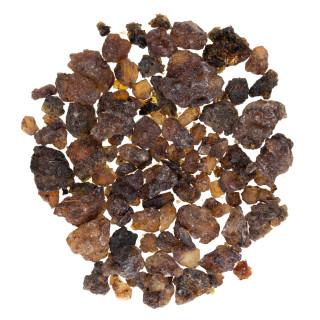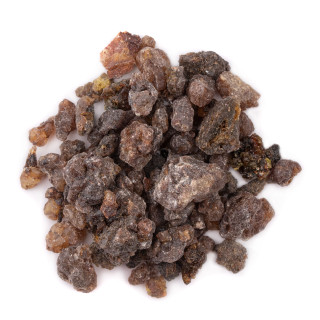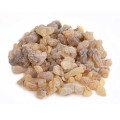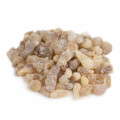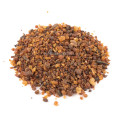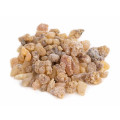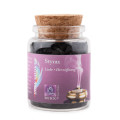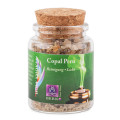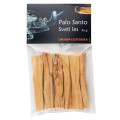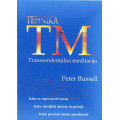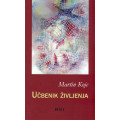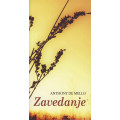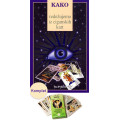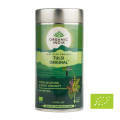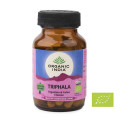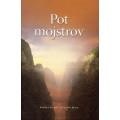Guggul Resin Incense
Net Weight: 50 g
Botanical Name: Commiphora wightii
Other Names: Indian bdellium tree, gugal, guggul, gugul, or mukul myrrh tree
Origin: Nepal
What is Guggul?
Guggul is a small, thorny tree commonly found in India, particularly in arid climates like the regions of Rajasthan and Gujarat. The resin is obtained from the tree's exudates and then dried. The name Guggul is derived from the Sanskrit word Guggulu, which means "protects against disease." It is a relative of the African myrrh tree and is also referred to as Indian myrrh. Guggul resin has a less bitter aroma compared to myrrh from Africa and Arabia.
About the scent of Guggul
Warm, slightly sweet, balsamic, herbal, and earthy aroma with hints of vanilla.
Effects of Guggul
In India, Nepal, and Tibet, Guggul is considered an important incense ingredient for cleansing, spiritual, and magical purposes. Guggul simultaneously calms and strengthens the nerves. As incense, it purifies the space and fills it with the spirit of expansion and liberation. In India, it is used as an evening incense for relaxation before sleep. It purifies the air and the body. In Ayurvedic medicine, it is valued for rejuvenating the mind, increasing energy, and promoting overall well-being. The tradition of using Guggul resin for medicinal purposes dates back over 2000 years based on ancient records from China and India. Today, it is also used in the field of cosmetics.
Usage
It is used on an incense charcoal or a burner.
Combines well with
Benzoin, dammar, dragon's blood, elemi, frankincense.
No reviews found

